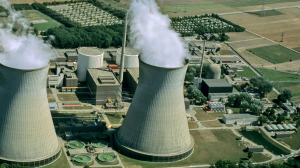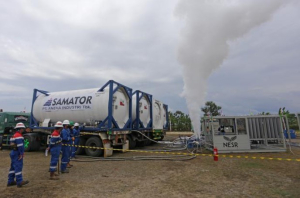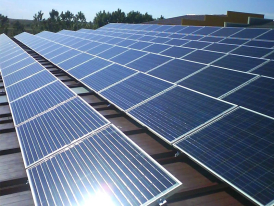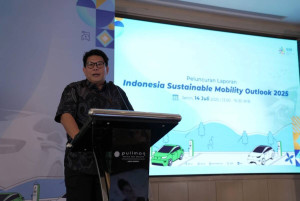Challenges persist in accelerating Indonesia's geothermal energy growth
Entrepreneurs in the geothermal sector have revealed that the growth of installed capacity for geothermal power plants (PLTP) in Indonesia remains sluggish, currently reaching only 40 MW per year. Several challenges are seen as hindrances to the expansion of this clean energy source.
Prijandaru Effendi, the Chairman of the Indonesian Geothermal Association (API), stated that to achieve the target of adding geothermal power plant capacity to 3,355 MW by 2030, an increase of approximately 450 MW per year is required.
Prijandaru noted that the currently installed geothermal capacity stands at 2,378 MW, with an average annual growth of only about 40 MW. Therefore, he emphasized that the growth of geothermal energy is still far from the potential of around 24,000 MW.
"The slow growth is due to various challenges, especially as we are still in the process of finding solutions," he remarked on September 20, 2023.
He mentioned that some of the challenges that could impede the growth of green energy include the gap between geothermal electricity prices and the project's economic viability, which may not be attractive to investors.
Furthermore, another challenge is the frequent changes in regulations, leading to uncertainty in the geothermal sector. Hoping to collectively address these challenges in the future.
Ineffective incentives
The Ministry of Energy and Mineral Resources (ESDM) has provided several incentives and facilitations to attract large companies to develop geothermal power plant projects.
"To attract investors, the government has improved regulations related to geothermal energy, including fiscal and non-fiscal incentives, reducing exploration risks through government drilling, preparing financing mechanisms for the exploration stage, and offering new Working Areas (WKPs) and Special Purpose Geothermal Working Areas (WPSPEs)," stated Harris Yahya, Director of Geothermal Energy at the Directorate General of New, Renewable Energy, and Energy Conservation (EBTKE).
However, Fabby Tumiwa, the Executive Director of the Institute for Essential Service Reform (IESR), believes that these incentives are ineffective in attracting investment in the geothermal business. He pointed out that geothermal investment is still seen as high-risk by business players.
"The incentives provided so far have been somewhat ineffective in reducing risks and attracting investment interest," said Fabby.
He mentioned that the ineffectiveness of these incentives can be observed in the development target for geothermal, which has not met the initial goal of reaching 7,000 MW by 2025.
"We were supposed to reach 7,000 MW by 2025, but it was postponed by the government to 2030 as the target of 7,000 MW," he explained.
He added that until now, geothermal development has only reached 2,350 MW. This means that the target has not been achieved in line with the expected growth.
"In the last three years, the addition of geothermal power plant capacity has been at most 200-300 MW per year, when we should be growing at a rate of 500-600 MW per year to meet that target," he clarified.
It is worth noting that Indonesia has the second-largest installed geothermal capacity in the world, with 2,175.7 MWe or 9% utilized for Geothermal Power Plants (PLTP), while the potential capacity stands at 24 GW.
Tag
Already have an account? Sign In
-
Start reading
Freemium
-
Monthly Subscription
20% OFF$29.75
$37.19/MonthCancel anytime
This offer is open to all new subscribers!
Subscribe now -
Yearly Subscription
33% OFF$228.13
$340.5/YearCancel anytime
This offer is open to all new subscribers!
Subscribe now







